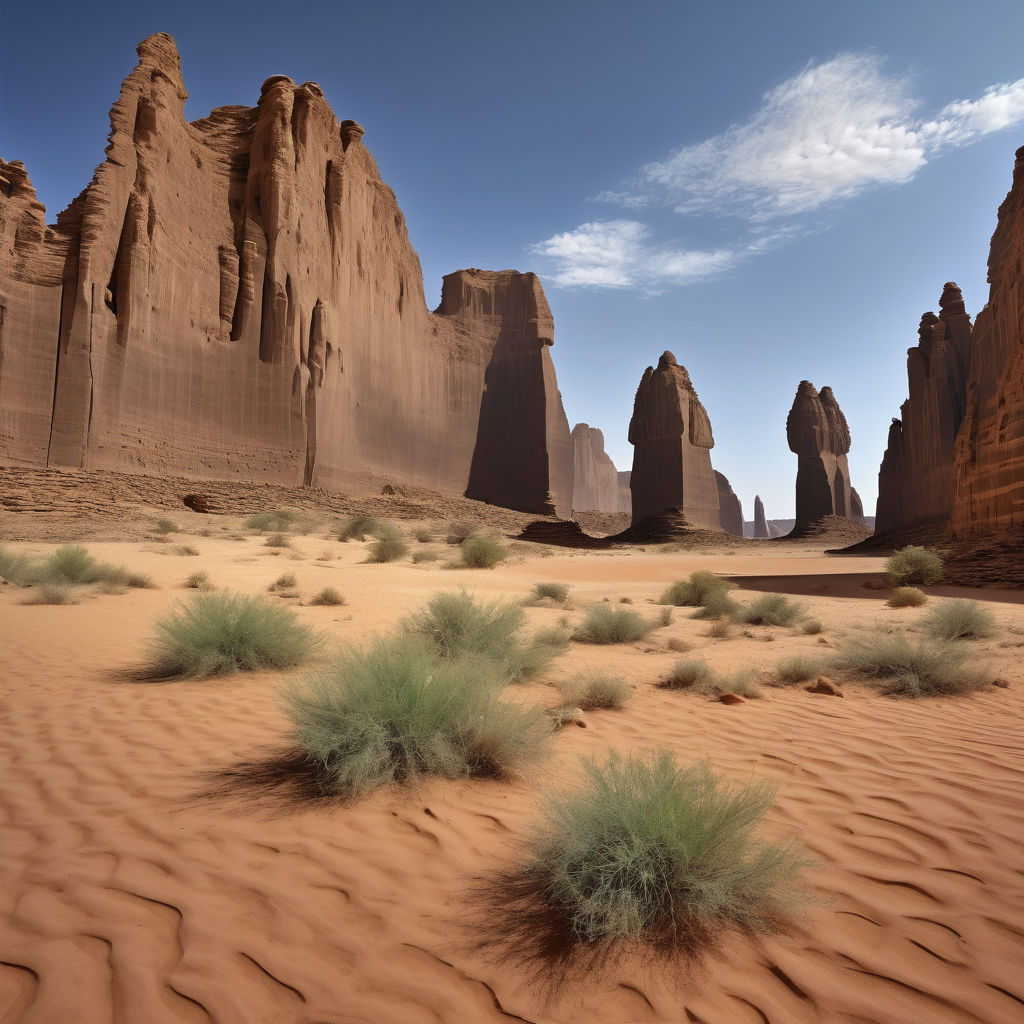Introduction to Chad: Culture, Diversity, and Modern Life
Discover Chad: From Sahara Landscapes to Cultural Festivals

Introduction to Chad
Chad, officially known as the Republic of Chad, is a landlocked country located in north-central Africa. It is bordered by Libya to the north, Sudan to the east, the Central African Republic to the south, Cameroon and Nigeria to the southwest, and Niger to the west. The country’s diverse landscapes range from the Sahara Desert in the north to the fertile savannas in the south. N'Djamena, the capital city, serves as the economic, political, and cultural hub of Chad. Other major cities include Moundou, Abéché, and Sarh. Chad boasts a rich cultural heritage influenced by its diverse ethnic groups, including the Sara, Arab, and Kanembu peoples, among others. Traditional music, dance, and storytelling are integral parts of Chadian culture. The country’s festivals, such as the Festival Dary in N'Djamena, celebrate this cultural diversity through performances and traditional crafts. Chadian cuisine, characterized by dishes like millet porridge and grilled meats, reflects the country’s agricultural practices and culinary traditions.
Cross-national and Cross-cultural Understanding
Chadians generally exhibit a welcoming and open attitude towards other cultures, influenced by the country's historical trade routes and interactions with neighboring countries. The people of Chad value cross-cultural understanding and actively engage in cultural exchanges, educational programs, and international partnerships that promote mutual respect and learning. Cultural exchanges play a significant role in fostering cross-cultural understanding in Chad. The country hosts various festivals and events that celebrate both local and international traditions. For example, the Festival International de la Mode Africaine (FIMA) in N'Djamena attracts designers and audiences from across Africa and beyond, promoting cultural exchange through fashion. Additionally, Chad’s participation in regional organizations such as the African Union and the Community of Sahel-Saharan States (CEN-SAD) facilitates cultural and educational exchanges. Educational programs in Chad emphasize global awareness and cross-cultural understanding. Schools and universities incorporate multicultural perspectives into their curricula, encouraging students to appreciate and respect diversity. The University of N'Djamena collaborates with international institutions to facilitate student and faculty exchanges, enriching the educational experience and fostering global connections.
Interactions and Social Dynamics
Typical interactions between Chadians and foreigners are characterized by warmth, respect, and a strong sense of community. Social behaviors in Chad reflect a blend of traditional customs and contemporary influences, emphasizing respect for others, hospitality, and communal living. Communication styles in Chad are generally informal and friendly. French and Arabic are the official languages, but several indigenous languages are also widely spoken, including Sara and Chadian Arabic. This multilingualism facilitates interactions with tourists and expatriates, making it easier for them to integrate into the local community. Cultural norms in Chad place a strong emphasis on respect for elders, community involvement, and a relaxed approach to time. These norms create a welcoming and inclusive atmosphere for foreigners, who often find it easy to adapt to the local way of life. Public displays of affection are generally modest, reflecting the country’s traditional values, but social gatherings and communal activities are vibrant and inclusive.
Views on Dating and Relationships
Attitudes towards dating and relationships with foreigners in Chad are generally open and accepting. Chadians recognize the opportunities for cultural exchange and personal growth that such relationships can bring. However, cultural expectations and traditions do play a role in shaping these views. Family involvement is significant in relationships in Chad, with elders often playing a crucial role in the approval process. Traditional customs emphasize respect, patience, and the gradual building of trust in relationships. While modern dating practices influenced by global trends are becoming more common among younger generations, traditional values still hold sway in many communities.
Marriage and Family
Marrying a foreigner in Chad involves navigating both legal and social considerations. Legally, the country has clear regulations governing marriage, including residency requirements and the need for proper documentation. Socially, cross-cultural marriages are generally accepted, though couples may face challenges related to cultural differences and integration. Familial acceptance is a key factor in cross-cultural marriages. Chadian families can be protective, and gaining their approval is often essential for the relationship's success. However, the diverse cultural landscape of Chad means that many families are already familiar with and accepting of different cultural backgrounds, which can facilitate smoother integration for foreign spouses. Trends in cross-cultural marriages reflect Chad’s open and inclusive society. Many Chadians who travel abroad for education or work form relationships with individuals from various cultures, bringing back diverse customs and traditions that enrich the local community.